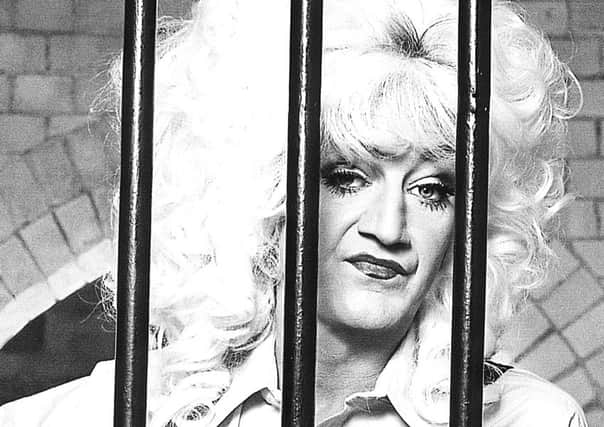Ayesha Hazarika: How the male-dominated media subverted #MeToo


It’s that special time of year when Scotland’s wonderful capital is invaded by eager culture vultures with backpacks, fanny-packs, spreadsheets and an incessant demand for directions.
Joining them in almost equal numbers will be the performers – including many stand-up comics such as myself. We’ll be the less enthusiastic ones with a slightly haunted look who haven’t seen sunlight for a long time as we’ve been working on our shows like pit ponies only for you to ignore our feeble attempt to hand over a flyer.
Advertisement
Hide AdAdvertisement
Hide AdAnd previews are tough. Especially when your material is all untested, rambling and you’re performing to eight people in a sweatbox. One preview went so badly a nice elderly lady asked me if was the first time I had ever tried stand up. Everyone’s a bag of nerves right now. Will I remember my show? Will anyone will come and see me? Should I have brought a proper coat? The festival is the place to ponder big questions.
Last year it was Brexit and I’m sure there will be much more of the B-word, but one of this year’s big themes is sexual harassment and feminism as a result of the #MeToo campaign.
The revelations about Harvey Weinstein, which were the catalyst for the campaign, were shocking. Especially the bit about what he did in the plant pot. Gross. He’s surely the only person to get a life-long ban from Homebase.
It was a big moment because, for the first time, it was okay for women of to speak about the sexual harassment or abuse they had encountered over the lives – much of it in the workplace.
Before Me Too, you weren’t meant to say what had happened to you. It wasn’t the “done” thing and was seen as vulgar. Obviously grabbing your arse was fine – but workplace etiquette can be odd that way.
Then it all came out thanks to the brave women who had the courage to break that rule and go public. And so the veil of secrecy which had protected these men and given them impunity was lifted. And yes it was mainly men – because men are still mainly in charge in society and so much of this behaviour was not just about sex, it was about power.
The #MeToo campaign went viral and it was like this lid had been lifted. Social media exploded with women of all ages, races and walks of life telling their stories and you realised that pretty much every woman had been affected by this kind of behaviour at some point in her life.
Advertisement
Hide AdAdvertisement
Hide AdThen we had Times Up and, of course, Donald Trump – you wait your whole lifetime for a big juicy gender equality campaign, then three come along at the same time.
I was excited. I thought “this is it!” I thought that women of the world would unite to take on the system, but it didn’t quite work that way.
Instead of women coming together to fight the patriarchy, it now looks like we came together to fight each other. I was hoping it would be like Made in Dagenham, sadly it seems to have gone a bit Prisoner Cell Block H.
Whenever you turn on the television or radio or look at social media, women are always having a go at each other about feminism, which is what I explore in my show Girl on Girl.
Whether it’s the gender pay gap or women on boards or up-skirting, the media (which is largely still run by white chaps) loves nothing more than seeing women taking lumps out of each other and shrieking – it’s like porn for the patriarchy, plus it keeps us women in our place and preserves the status quo.
I have had some horrendous experiences after being made to debate women which feel more like a freak show or a dog (bitch) fight, than a considered discussion about important issues.
And of course, women don’t have to agree on everything – men certainly don’t. Men are allowed to have really diverse opinions and even if there is disagreement, they are allowed to be authoritative and respected.
Advertisement
Hide AdAdvertisement
Hide AdTheir opinion may be challenged, but their right to hold it isn’t – especially by their opponent. There’s a mutual respect. Women, on the other hand, are pitted against each other on often highly sensitive gender-based issues and encouraged to get emotional and personal with each other.
I was once asked to have a fight with Esther Rantzen! Are you kidding? How can you have a row with Childline?
The #MeToo campaign is important but the job of feminism is far from done and the same issues still endure today that the Suffragettes campaigned on – better pay and conditions, childcare, women’s health, violence against women and, of course, women and power.
Some women first got the vote a century ago, but women’s voices are far from being heard and respected in the same way men’s are. So instead of tearing lumps out of each other about whether feminism has gone too far (spoiler – it hasn’t), let’s try and focus on the things that really matter.
Ayesha performs her show Girl on Girl at the Gilded Balloon at 6.45pm from 2-11 August